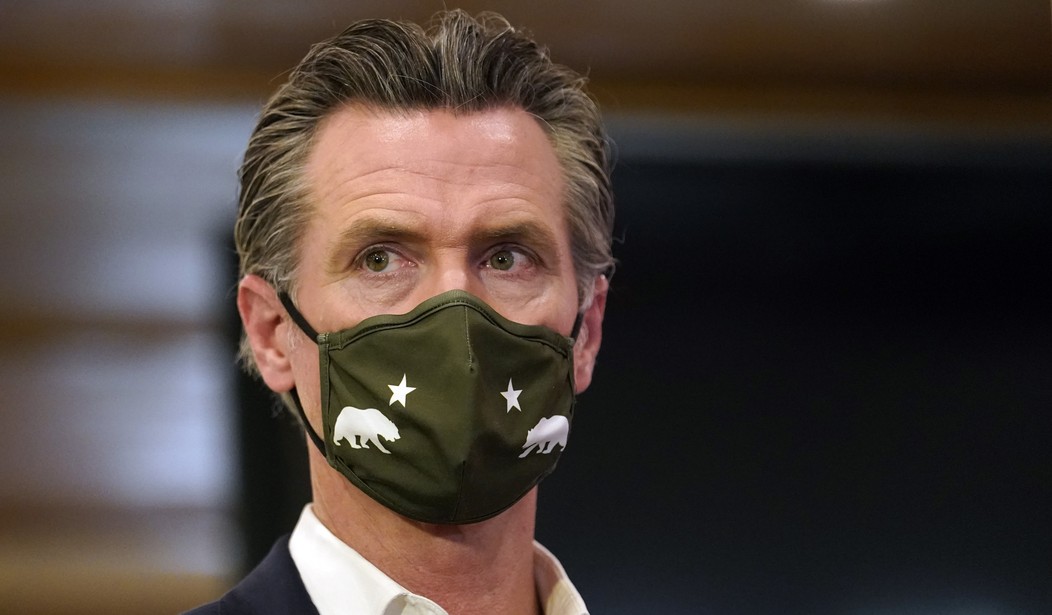Wednesday the NY Times published an opinion piece by two law professors from Berkeley. According to them, the upcoming recall election of Gov. Newsom is unconstitutional because Newsom’s replacement could (in fact almost certainly would) get fewer votes than those who oppose the recall.
The question really comes down to how the recall works in California. After launching the recall, petitioners have to collect enough signatures to get it on the ballot. If they do that successfully, then a vote is scheduled. Voters in the recall election are presented with two questions. In this case, the first is should Newsom be recalled, yes or no. Whichever side has the majority wins. Then the second question is who should replace Newsom. And here’s where the law professors think the California system fails:
The first question is decided by a majority vote. If a majority favors recalling Mr. Newsom, he is removed from office. But the latter question is decided by a plurality, and whichever candidate gets the most votes, even if it is much less than a majority, becomes the next governor. Critically, Mr. Newsom is not on the ballot for the second question.
By conducting the recall election in this way, Mr. Newsom can receive far more votes than any other candidate but still be removed from office. Many focus on how unfair this structure is to the governor, but consider instead how unfair it is to the voters who support him.
Imagine that 10 million people vote in the recall election and 5,000,001 vote to remove Mr. Newsom, while 4,999,999 vote to keep him in office. He will then be removed and the new governor will be whichever candidate gets the most votes on the second question. In a recent poll, the talk show host Larry Elder was leading with 18 percent among the nearly 50 candidates on the ballot. With 10 million people voting, Mr. Elder would receive the votes of 1.8 million people. Mr. Newsom would have the support of almost three times as many voters, but Mr. Elder would become the governor.
That scenario is not a wild hypothetical. Based on virtually every opinion poll, Mr. Newsom seems likely to have more votes to keep him in office than any other candidate will receive to replace him. But he may well lose the first question on the recall, effectively disenfranchising his supporters on the second question.
Granted the hypothetical in this situation does seem a bit odd. Why should the leading alternative candidate be able to win the governorship with far fewer votes than those who opposed the recall in the first place?
But I think the argument falls apart if you consider the other alternative. Let’s say a recall drive is started and petitioners gather enough signatures to bring it to a vote (in this case more than 2.1 million signatures were gathered). Now imagine that the recall election is held but Newsom is allowed on the ballot.
In response to the first question 5,000,001 voters choose to remove Newsom. On the second question of who should replace him, 4,999,999 (everyone who was against the recall) votes for Newsom and none of the other candidates come close because the 5 million plus one votes are split between many candidates. So the outcome is that Newsom is recalled by a majority of voters and then re-elected at the same time. In effect, the minority has nullified the will of the majority who voted for the recall. Is that respecting the will of the voters and the principle that the majority wins?
The current system assumes that the answer to the first question determines the possible answer to the second. If the governor is not recalled in question one then votes for who should replace him in question two mean nothing. But if the recall succeeds in question one then the governor has been recalled by a majority of voters and is not eligible to be immediately re-elected.
What the law professors are suggesting isn’t purely hypothetical. In April, State Senator Ben Allen proposed a constitutional amendment that would allow the targeted official to be on the ballot:
Senate Constitutional Amendment 3 would make successful recalls more difficult by placing the name of the targeted official on the ballot as a successor candidate.
Under current law, voters are given two issues to decide — whether the official should be ousted and which of the successor candidates should be elected instead.
That, Allen argues, is unfair because with multiple candidates, someone could win with relatively few votes. Under his measure, voters would simply decide whether to retain the incumbent with a plurality of votes or opt for one of the other contenders.
That hasn’t passed yet but may receive more attention if Newsom is recalled next month. If the system does change, expect future recalls to place a high priority on solidifying behind a single alternative candidate who can potentially win on question two against the incumbent instead of the free-for-all we have now.








Join the conversation as a VIP Member